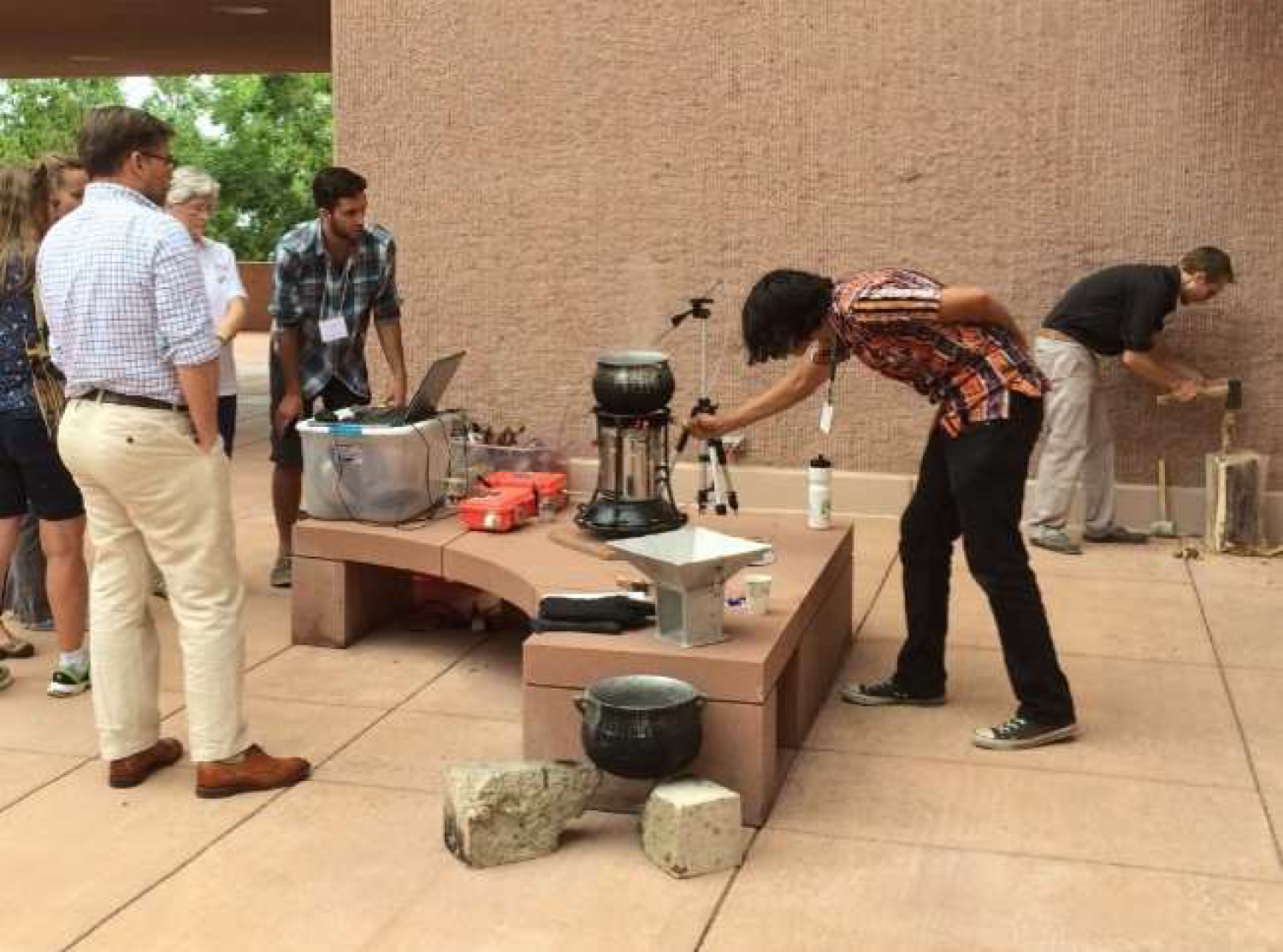New course offered: Cookstove Assessment
MCEN 4228/5228-004
Spring 2015
MWF 2 – 2:50
Instructor: Mike Hannigan
FLMG 102
Why is this class important?
Cooking, heating and lighting in the developing world often involves inefficient and incomplete
combustion of solid; 3 billion people rely on solid fuel for cooking. In 2010, the Global Burden of
Disease Study ranked this combustion as the 4th largest risk factor, causing 4 million premature
deaths per year. Additionally, this inefficient combustion plays a substantial role in climate change.
There is a strong societal need to tackle this problem.
What will you learn?
Students leaving this course will be able to meet this need as they will have the skills to assess existing
and new technology used in the developing world for cooking, heating and lighting. The course will
cover (1) food chemistry with the focus on increasing useable calories, (2) combustion and heat
transfer as related to cooking, heating and lighting, and (3) combustion emissions and stove use
assessment.
What will you do?
There will be case studies interlaced throughout the content and the bulk of the work load will be
project based, including literature review and hands on measurements. Each student will focus on a
small region of the globe as climate, food, and fuel spatial differences will impact the assessment. The
students will get to use the latest tools from Hannigan’s research group to do their own measurements
of stove efficiency and emissions for given foods and fuels. All students will present their results on a
website for wider dissemination.
The course will draw on material from Thermo, Heat Transfer, and Measurements courses as well as
scientific literature focused on cookstoves and new texts on Food Chemistry and Bioenergy.



